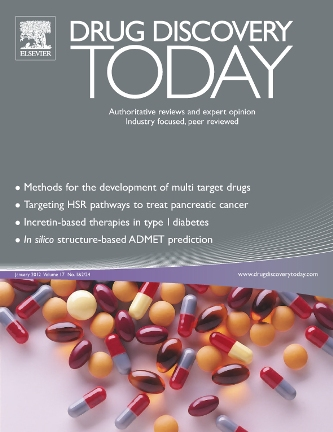肽驱动的方法在先进的伤口愈合材料。
IF 7.5
2区 医学
Q1 PHARMACOLOGY & PHARMACY
引用次数: 0
摘要
肽基材料,如抗菌肽(amp)、细胞穿透肽(CPPs)、血管生成肽和细胞外基质(ECM)模拟肽,为伤口愈合提供了独特的多功能益处,包括感染控制、增强血管生成、免疫调节和组织再生。代表性的平台,包括水凝胶、纳米纤维、功能化敷料和输送系统,利用这些肽来维持治疗作用并改善愈合结果。尽管取得了可喜的进展,但仍然存在重大的翻译障碍,包括肽稳定性、酶降解、生产可扩展性和监管批准。通过优化肽工程和递送策略来解决这些障碍对于临床翻译和肽驱动伤口治疗的更广泛临床应用至关重要。本文章由计算机程序翻译,如有差异,请以英文原文为准。

Peptide-driven approaches in advanced wound healing materials
Peptide-based materials, such as antimicrobial peptides (AMPs), cell-penetrating peptides (CPPs), angiogenic peptides, and extracellular matrix (ECM)-mimetic peptides, offer unique multifunctional benefits for wound healing, including infection control, enhanced angiogenesis, immunomodulation, and tissue regeneration. Representative platforms, including hydrogels, nanofibers, functionalized dressings, and delivery systems, leverage these peptides for sustained therapeutic action and improved healing. Despite these promising advances, significant translational barriers remain, including peptide stability, enzymatic degradation, manufacturing scalability, and regulatory approval. Addressing these barriers through optimized peptide engineering and delivery strategies is essential for the clinical translation and wider clinical adoption of peptide-driven wound therapies.
求助全文
通过发布文献求助,成功后即可免费获取论文全文。
去求助
来源期刊

Drug Discovery Today
医学-药学
CiteScore
14.80
自引率
2.70%
发文量
293
审稿时长
6 months
期刊介绍:
Drug Discovery Today delivers informed and highly current reviews for the discovery community. The magazine addresses not only the rapid scientific developments in drug discovery associated technologies but also the management, commercial and regulatory issues that increasingly play a part in how R&D is planned, structured and executed.
Features include comment by international experts, news and analysis of important developments, reviews of key scientific and strategic issues, overviews of recent progress in specific therapeutic areas and conference reports.
 求助内容:
求助内容: 应助结果提醒方式:
应助结果提醒方式:


